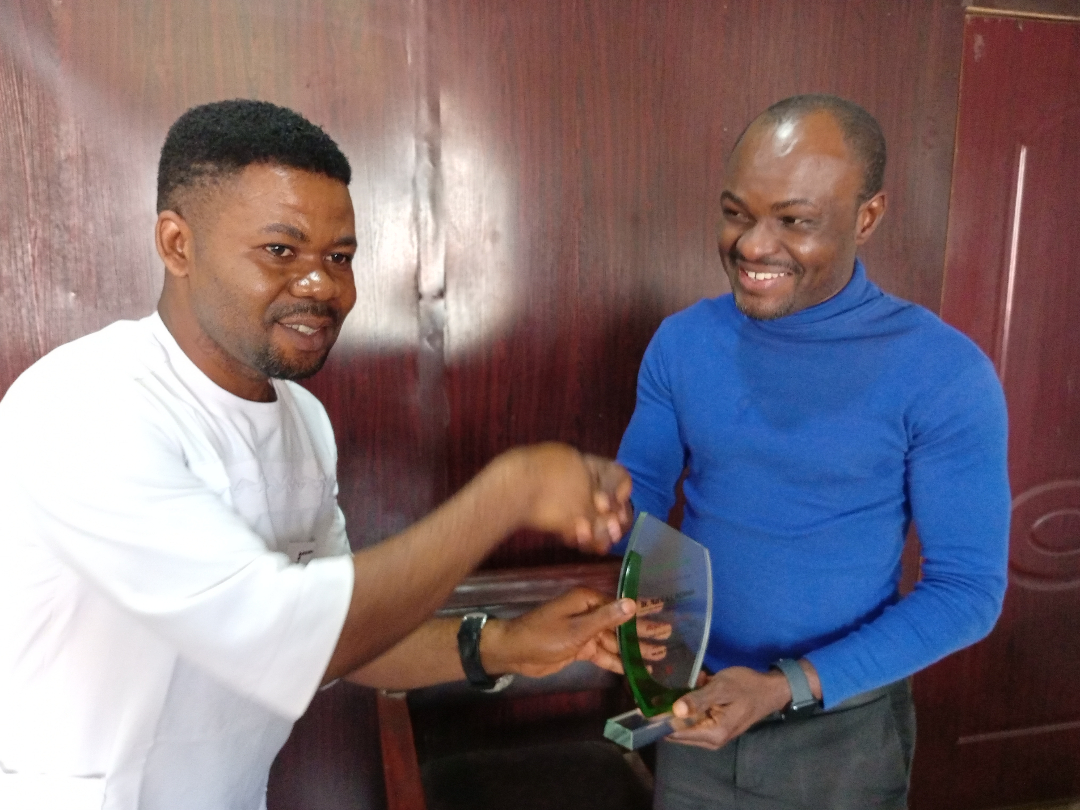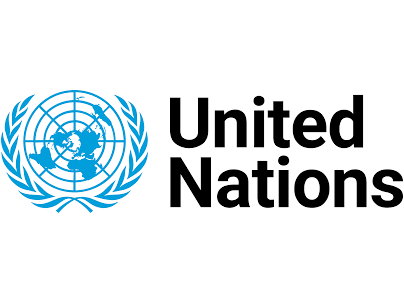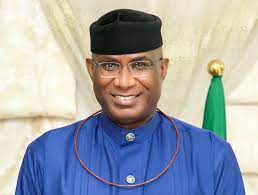Health
WHO Urges Better Hepatitis Prevention Through Testing

Every 30 seconds, one person in the world dies of a disease caused by hepatitis.
The United Nations has planned to largely contain the various forms of viral hepatitis by 2030.
But to achieve this, diagnosis and treatment must be improved.
The World Health Organisation (WHO) said this ahead of the World Hepatitis Day on Wednesday.
This year, the motto of World Hepatitis Day is “Hepatitis can’t wait’’.
The WHO had called on governments to campaign to get more people tested and treated.
“Hepatitis was an inflammation of the liver that can lead to severe liver disease and cancer.
“There are five different types of viral hepatitis, from A to E.
“They are triggered by viruses that are not related to each other,’’ WHO stated.
The pathogens are transmitted through contaminated food in the case of A and E, or through blood and sexual contact in the case of B and C.
Hepatitis D only developed in people who have hepatitis B.
Hepatitis B and C are the most widespread and one of the main causes of liver cirrhosis and liver cancer.
According to WHO, estimated 354 million people worldwide live with chronic hepatitis B or C.
Three million people become infected every year, and 1.1 million people die from it.
Although the diseases can be cured, there is a problem with diagnosis.
According to WHO estimation in 2019, only 21 per cent of people with chronic hepatitis C knew they were infected.
For hepatitis B, it is only 10 per cent of the infected persons knew of their infections.
Because people at high risk of infection, such as some drug users and men who have sex with men, tend to be harder for health services to reach, WHO is advocating the provision of self-tests for hepatitis C.
In a new manual, it recommends how and where such tests can be given and helpers trained to use them. (NAN)
Health
Ogbodo Advocates Urgent Govt Action to Retain Nigerian Healthcare Workers

By David Torough, Abuja
The Chief Executive Officer and Medical Director of Lydia Memorial Hospital, Ugbokolo, Dr. Mark Ogbodo has urged the Federal Government to urgently address the welfare of healthcare professionals in Nigeria.
Ogbodo stated this shortly after he was conferred with an award of excellence by the Abuja Media Practitioners in Abuja on Tuesday.
The award recognised him as a media ambassador and the most media-friendly, innovative, and impactful young doctor and writer in recent times, a title that reflects his dual passion for both healthcare and public engagement.
Ogbodo stressed that without deliberate efforts to improve conditions, the country risks a deeper crisis in its health sector due to the mass exodus of medical professionals.
On the award, Dr Ogbodo expressed deep appreciation for the recognition and used the moment to shed light on what inspired his journey into healthcare entrepreneurship.
According to him, the vision to build Lydia Memorial Hospital was born out of a lifelong ambition to contribute meaningfully to the development of Nigeria’s health infrastructure.
“Growing up, one of my ambitions was to build facilities and projects in the health sector of my area of professional calling.”
He also envisioned supporting improvements in Nigeria’s security sector. However, on the educational sector, he pointed out how he has, over the years, given scholarships to underprivileged persons, and how he organised and sponsored literary competitions for his Alma mater, Unique Secondary School Makurdi, and also, a literary competition for all secondary schools in Okpokwu LGA Benue, in collaboration with the Association of Nigerian Authors.
“I had to start somewhere. So I began in Ugbokolo, a rural area that reflects many of the challenges common in underserved regions. It was important for me to contribute where help is needed the most.
“It’s about building something sustainable, something that expands access and quality. We want to go beyond Ugbokolo and replicate this model across the country,” he added.
On the biggest issue currently facing Nigeria’s healthcare system, Dr. Ogbodo pointed unambiguously to brain drain.
According to him, the flight of trained professionals, doctors, lab. Scientists, and specialists, to other countries in search of better opportunities is crippling the sector.
“The most urgent issue is remuneration. The doctors that are still here are overworked. Many are discouraged. If we don’t improve welfare packages now, we will lose more,” he warned.
He stressed that the government must act swiftly to provide incentives, career growth opportunities, and working conditions that can compete with what foreign countries offer.
On the integration of technology and innovation into healthcare delivery, Dr Ogbodo emphasised that Lydia Memorial Hospital is already taking deliberate steps in that direction.
He revealed that the hospital consults regularly with professional bodies such as the Nigerian Medical Association (NMA), Medical and Dental Council of Nigeria (MDCN), and both federal and state ministries of health to ensure compliance and adopt cutting-edge practices.
“With that level of cooperation and scrutiny, we have been able to stay ahead. Our hospital is the first in the state to be approved as a holding centre or treatment centre for infectious diseases. That speaks volumes about our commitment to innovation,” he said.
He further maintains that his vision is far from complete as he sees Lydia Memorial Hospital not just as a medical facility but as a model for what is possible when professionals take initiative and the Government supports local ingenuity.
Earlier, the secretary of the group, David Torough, speaking on behalf of the professionals, reiterated their commitment to recognizing and encouraging individuals who are making positive impacts in their communities.
He said the group has closely monitored Dr. Ogbodo’s activities over time and is pleased to recognize him as one of the most media-friendly, innovative, and impactful young doctors and writers in recent times, particularly in Benue State.
Health
Lassa Fever Death Rate Rises as Cases Spread — NCDC

The Nigeria Centre for Disease Control and Prevention (NCDC) has reported a rise in the fatality rate of Lassa fever, as the disease continues to spread across states with new confirmed cases and more deaths.
The NCDC disclosed this in its latest situation report for Epidemiological Week 23, June 2–8, 2025, which was posted on its official website on Wednesday.
According to the agency, Nigeria has recorded 143 deaths from 758 confirmed Lassa fever cases so far this year.
This translates to a case fatality rate (CFR) of 18.9 per cent, higher than the 17.8 per cent recorded during the same period in 2024.
The NCDC also revealed that 11 new confirmed cases were reported in the week under review, up from eight cases recorded the previous week.
The new cases were detected in Ondo, Edo, Bauchi, and Taraba States.
“In 2025, 18 states have recorded at least one confirmed case of Lassa fever, spread across 96 Local Government Areas.
However, 90 per cent of all confirmed cases were reported from just five states: Ondo 31 per cent, Bauchi 25 per cent, Edo 16 per cent, Taraba 15 per cent, and Ebonyi 3 per cent,” the report stated.
The agency noted that the age group most affected remained young adults aged 21 to 30 years, with a median age of 30.
It also reported one new healthcare worker infection in the reporting week, bringing the total number of affected health workers in 2025 to 23.
The NCDC identified several challenges fueling the outbreak, including late presentation of cases, poor health-seeking behaviour, and high cost of treatment, inadequate sanitation, and low awareness in affected communities.
To curb the spread and reduce deaths, the agency said it had activated a multi-sectoral Incident Management System and deployed 10 Rapid Response Teams to states with the highest burden.
Additional response measures included the training of health workers on case management, the launch of Infection Prevention and Control (IPC) e-learning platform, community sensitisation campaigns, environmental response interventions, and media outreach in collaboration with stakeholders.
The NCDC urged Nigerians to maintain high hygiene standards, seek medical attention early when symptomatic, and avoid contact with rodents and their droppings, known vectors of the disease.
Lassa fever is a viral hemorrhagic disease transmitted primarily through contact with the urine or stool of infected rats.(NAN)
Health
UN Women Trains Bauchi Artisans on Biogas Digester Installation

The UN Women says it has trained 20 artisans and seven agricultural extension workers on biogas digester installation, maintenance, and kitchen gardening to boost livelihoods in Bauchi’s rural communities.
The National Coordinator for the UN Women Biogas Projects,
Mr Desmond Osemije, disclosed this on Tuesday at the opening of the training in Bauchi.
Osemije said that the initiative was also designed to tackle climate challenges in rural communities.
He explained that the 20 technicians, primarily plumbers, were being equipped with the skills to install and maintain biogas digesters and will, in turn, train 250 rural women beneficiaries in Bauchi and Dass Local Government Areas.
Osemije further said that 250 rural women would benefit from the biogas digester, comprising 125 each from Bauchi and Dass LGAs.
“Additionally, seven agricultural extension workers are undergoing training to establish kitchen gardens, enabling rural households to grow vegetables and other crops for easy access to fresh food.
“This project seeks to improve the time use of women, boost agricultural productivity and incomes, enhance health standards, reduce deforestation, and contribute significantly to combating climate change,” Osemije said.
He also said that producing low-cost biogas from animal waste would provide rural women with affordable clean energy for cooking, reduce income and time poverty.
It will also lessen their exposure to health hazards and risks of gender-based violence.
Also speaking, Hajiya Marka Abbas, the National Public Relations Officer of the Small Scale Women Farmers Organization of Nigeria, underscored the need for collaboration with UN Women to promote sustainable agricultural practices and a cleaner environment.
She said that the project not only trains women and artisans to install and maintain bio-digesters, but also creates opportunities for income generation and economic independence.
“By converting waste into biogas and organic fertiliser, the project supports a circular economy, lowers greenhouse gas emissions, and combats deforestation.
“The initiative is being implemented in partnership with the Bauchi State Government through the Ministries of Women Affairs and Agriculture,” she said
A participant, Miss Fatima Usman, expressed optimism that the training would enhance her livelihood and pledged to pass on the knowledge to other rural women. (NAN)






















